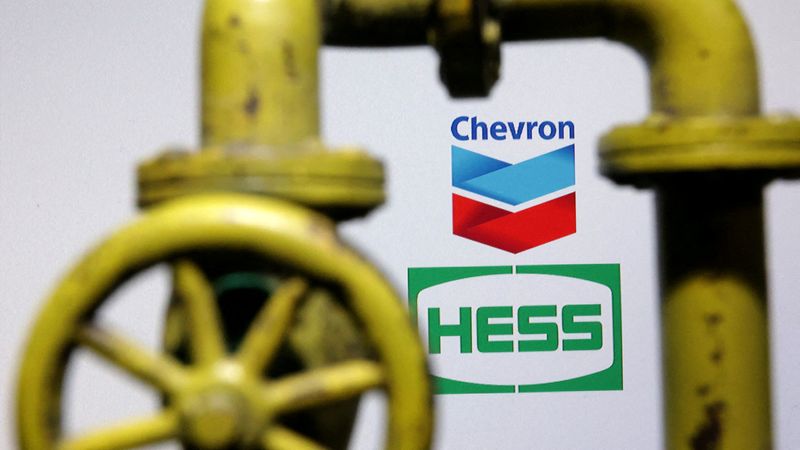(Reuters) - Blockbuster takeovers by oil and gas majors pushed the value of U.S. energy dealmaking last year to a record $192 billion, more than triple the amount in 2022, according to data from analytics firms Enverus on Tuesday.
Acquisitions in the Permian shale basin straddling West Texas and New Mexico, the largest U.S. oilfield, soared in the last two years as oil prices jumped on strong demand after Russia's invasion of Ukraine and producers sought producing wells to guarantee future supplies.
Three pending deals - Exxon Mobil (NYSE:XOM)'s offer for Pioneer Natural Resources (NYSE:PXD), Chevron (NYSE:CVX)'s bid for Hess (NYSE:HES) and Occidental Petroleum (NYSE:OXY)'s for CrownRock - drove fourth quarter deal values to $144 billion - a record level for any quarter and year.
"Oil and gas is undergoing a historic consolidation wave comparable to what occurred in the late 1990s and early 2000s giving rise to the modern supermajors,” said Andrew Dittmar, a senior vice president at Enverus.
Deal mania should continue this year, he said, pointing to potential divestitures and the expected offer of closely held shale oil and gas producer Endeavor Energy. Reuters last month reported the Midland, Texas-based company could fetch between $25 billion and $30 billion in any sale.
Buyers looking to hive off pieces of those big acquisitions could generate a flurry of smaller deals this year, Dittmar said. Private-equity firms also have raised new capital and "would likely be interested in these non-core assets," he said.
For 2023, acquisitions of oil-producing assets predominated in the U.S. There was a total of about $186 billion in such deals last year with Exxon's pending $65 billion offer for Pioneer the largest.
A smaller $6 billion overall was spent on natural gas-focused deals last year, compared with $10.6 bllion in 2022, with the largest being Tokyo Gas' $2.7 billion acquisition of Texas-based Rockcliff Energy, according to Enverus.
Even though U.S. gas futures plunged by about 44% in 2023 after rising about 20% in 2022, the deal comes as part of the Japanese company's efforts to expand its North American shale gas operations to meet growing demand for natural gas as an energy transition fuel.
